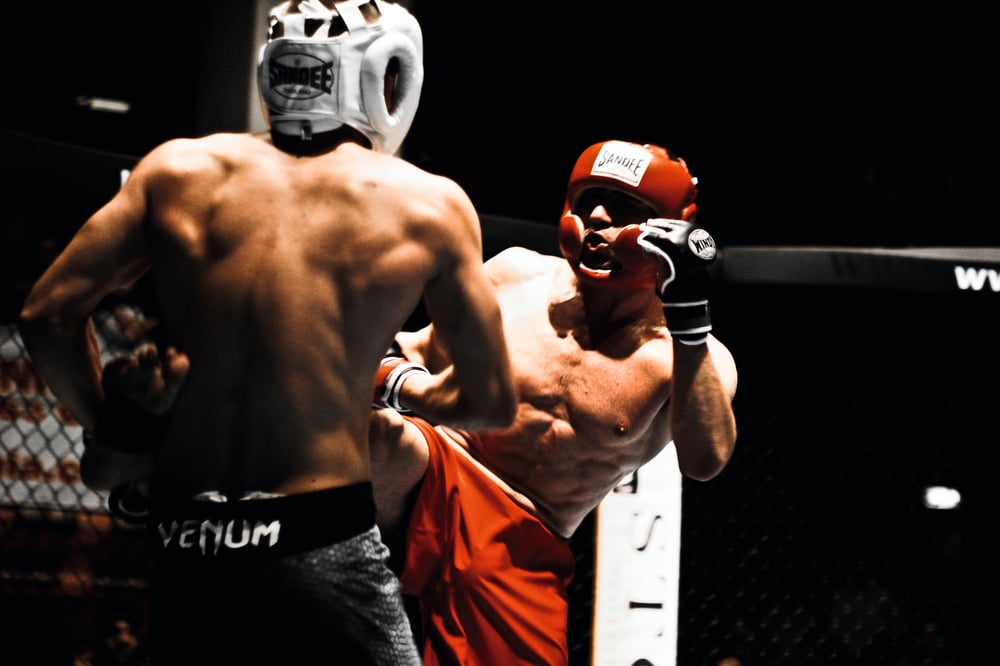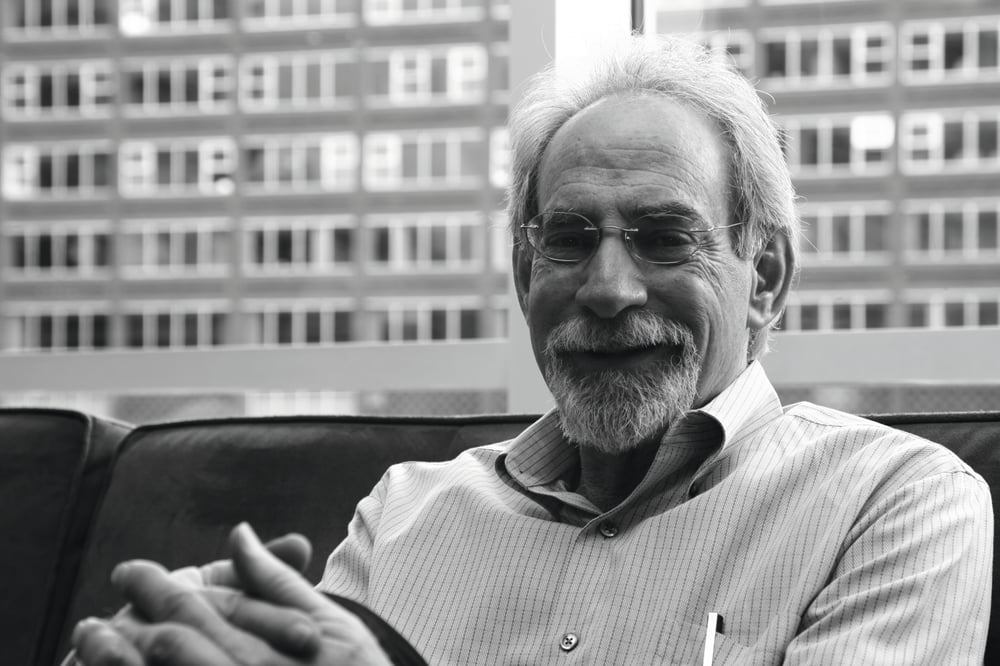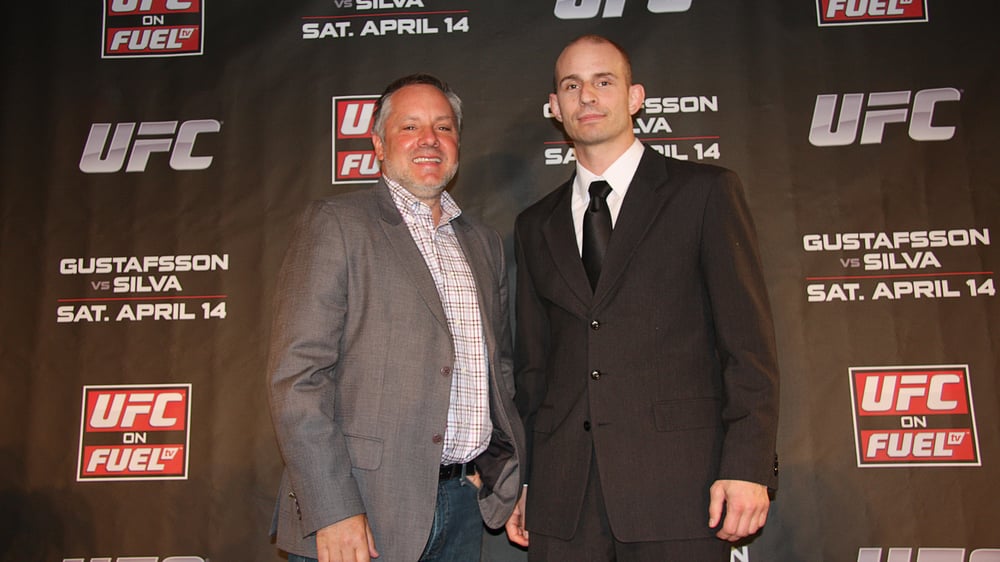
Issue 091
August 2012
It’s approaching six months since the formation of mixed martial arts’ first international governing body, but has anything changed? Fighters Only editor Nick Peet reviews the status and goals of the UFC-endorsed International MMA Federation…
Amongst the fans, the furor and fever of April’s UFC on Fuel 2 card possibly one of the most significant moments in the history of MMA was declared, yet largely went unnoticed. The announcement of the International Mixed Martial Arts Federation perhaps didn’t catch the attention of many fans worldwide, but its establishment is undoubtedly the single biggest challenge in the history of the sport.
According to the press release, the “democratic, non-profit federation was created to further the global development and recognition of the sport of MMA.” And its mandate is “to bring international structure, development and support to one of the world’s fastest growing sports.”
And, perhaps the most significant aspect of the announcement, was that it was done live at a UFC press conference. The IMMAF has the full support of the world’s number-one MMA promotion, and that alone not only gives the federation genuine credibility, but it also gives it leverage on a global scale.

SO, WHAT IS IT?
Founded in Sweden on February 29th 2012, the International MMA Federation’s sole purpose is to help the development and overall acceptance of the sport. The IMMAF intends to help create international amateur competitions by working closely with existing national MMA federations around the world, while also monitoring and supporting the emergence of governing bodies in countries where there are no federations.
One of their main focuses is developing MMA as an international sport, where participants can be involved on a recreational level all the way to an elite level, from club shows right through to, perhaps, the Olympic Games.
Initially, they will concentrate on establishing relationships between rival federations in various nations – like Brazil for example which has six MMA governing bodies – while also assisting in the formation of federations in countries like the United Kingdom, which has no recognized MMA federation.
IMMAF president August Wallen tells FO: “For the Federation, the goal is, in the long run, getting Olympic status, but that is far away… Total focus is on organizing national federations, that is our goal for the first year. When we are big enough we will then look to develop international championships in MMA. That is something that we will need to build, and that is also a must to get into SportAccord.” Which is the umbrella organization for both Olympic and non-Olympic sports. It’s the first step towards getting MMA into the games.
Former executive director of the Nevada State Athletic Commission, and present UFC vice president of regulatory affairs, Marc Ratner says: “To really have the sport worldwide, this is what you need. Now we’ve done maybe 15 or 16 fights with the UFC where we’ve self-regulated, but that was just to grow the sport, now we shouldn’t be self-regulating we should have these federations in place.
“In Stockholm, the Swedish MMA Federation were running the fights, they were adjudicating it and that’s the way it should be. I’m happy our role, as the UFC, is getting the sport grown, whether it be in the UK, in Germany, in Brazil, Tokyo, Abu Dhabi, that’s good. But now the next step is an independent federation worldwide. If the sport is ever going to be in the Olympics this is what you have to have.” For that the IMMAF intends to set rules for amateur MMA and ultimately international amateur championships and competitions.
At its simplest, the IMMAF will act as an over-arching federation, working for regulation, development and acceptance.

HOW WILL IT AFFECT THE SPORT?
One of the primary goals of the IMMAF is getting mixed martial arts into the Olympic Games. MMA breaking into the ‘greatest show on earth’ means the sport of MMA will truly gain global mainstream acceptance. “Having MMA in the Olympics gives it more validation,” says Wallen.
The key is the formation and application and acceptance of a global set of rules to govern amateur mixed martial arts events. The IMMAF plans to speak with amateur promotions beforehand, but the regulations will be based around the Unified Rules while incorporating far more safety measures to protect amateur athletes.
What that will also help introduce is a far more stringent set of regulations available to parents of children looking to train and compete in MMA, while also governing those who teach the sport in gyms, clubs and dojos currently.
Also, having various governing bodies fighting for their own survival in one sport is proven to do more damage than good. Now in mixed martial arts, the IMMAF can keep them in line. The proliferation of sanctioning bodies is what has got the sport of professional boxing on the ropes.
“That’s what we hope to avoid in MMA,” Ratner adds. “There’s no body above those sanctioning bodies to say, ‘No, this is the unified way you’re going to do it.’ ... I’m not saying there wont be a proliferation in MMA organizations one day, that may well happen, but if you have this umbrella federation in place they all have to be under it, that’s the goal.”
?HOW WILL IT AFFECT FIGHTERS?
Aside from the obvious route of being able to progress up through a pyramid program, from amateur club shows to international tournaments and then ultimately professional MMA, the formation of the IMMAF will also ensure safety and medical appraisals are maintained.
In areas without stringent athletic commissions both fighter medicals and sloppy promotions are rife. In the UK, for instance, with no governing body to answer to, ‘professional’ mixed martial arts events are being staged nationwide most weekends, yet fighters don’t require blood tests, their records aren’t regulated and the promoters call the shots without having to adhere to any safety guidelines or specifications. It’s home to the most established MMA community in Europe, and the base for a dozen or more UFC stars, yet its domestic scene is as lawless as the Wild West.
The IMMAF will go into these territories and help structure a governing body which will regulate fighters, promoters, coaches and events to ensure that safety is paramount. Basically to bring the rest of the world up to the same standards of commissions in places like Nevada and California, with high-level drug testing, medical suspensions and fighter registers ensuring the very best MMA product possible.
Wallen says: “I don’t think it is a problem to get a person or an organization set up in every country, what is a challenge is getting everybody to unite. For example, I think there are three organizations already in Italy. And we don’t want to get just one and make it more fragmented, we’d like to all work together, and that will be the challenge… start a true national federation where as many as possible are included.”

HOW WILL IT AFFECT FANS?
For fans of mixed martial arts that attend UFC, Strikeforce, Bellator and other professional events, the impact of the IMMAF won’t affect your local card much at all – initially. It’s definitely worth stating that both professional and amateur MMA events in North America are largely governed by local state athletic commissions, and this is highly unlikely to ever change. That’s because the IMMAF will only ever directly sanction international amateur events.
The federation’s role, as with any international governing body, would be to support and advise the commissions only. But it would remain the job of the athletic commission or national federation to govern and sanction MMA events in their region, just as it is done across North America today.
“The US is special,” Wallen concedes. “It is very fragmented. It is already very professional. Each state has their own rules and federations and I would say that the US will be a special challenge in itself. To try and go into each state and attempt to gets all its federations to join up and then all the states to join a US federation first is going to be difficult. But it is a must in the long run. That is something we will have to tackle long term in order to become a true world federation and to get into SportAccord.
“Most countries are not as fragmented as America, however, so things will be a lot simpler elsewhere.”
WILL MMA RULES CHANGE?
The IMMAF has no plans to change the Unified Rules of Mixed Martial Arts, the set of regulations endorsed by the majority of organizations on the planet. However, it will look to lay down a set of rules more fitting to amateur sportsmen and women.
Wallen states: “We will go with the Unified Rules and also follow the drug and health checks set by the Nevada code. In order to join SportAccord we will have to adhere to the same regulations worldwide.
“But we will have to have a different set of rules for the amateur side of the sport, for sure. They will not be the same as the Unified Rules. What has worked in Swedish MMA is something called the ‘safety ladder,’ which means you start out competing with lighter rules and progress your way up.
“Compare it to motor racing; just because you have a driving license I don’t think anybody would let you into a Formula One car. You would have to start out in karts and work your way up through the levels, going faster and faster. And the same should be done in fighting. MMA has developed backwards, really, compared to other sports.”
And Wallen already has some concepts for the IMMAF’s amateur rules: “It should be shorter rounds, more protection gear, probably, and other things. If you look at Thai boxing, which is now in SportAccord, you can see that their protective gear, their rounds and their rules is very similar to professional Muay Thai rules, but there is still more protective gear and safety regulations.”
He adds: “The whole aspect of the amateur side of MMA needs to be thoroughly investigated. You have to take the experience of everyone organizing amateur events and analyze everyone’s knockout rate, injury rate, results and issues and by using that experience then we can formulate the best set of rules for the sport.”

WHAT CAN GO WRONG?
The full support of the UFC is monumental, and immediately sets the IMMAF apart from any other organization calling themselves a world governing body.
But, naturally, there is likely to be some resistance from other promoters, elite-level fighters and possibly even established governing bodies. And while it’s something that the IMMAF is hoping to avoid, Ratner admits it will be a long journey for the federation that will take years.
“There’s always the possibility of encountering problems, like other MMA promoters not wanting to be in it and not wanting to support it, but it’s going to have to get some sort of legal standing. This is not an overnight process, this is going to take years, I truly believe that. And what I want to stress is, it’s independent of the UFC. We support the IMMAF and we will do everything we can to help them, but it’s still an independent body.”
HOW LONG IS IT GOING TO TAKE?
Applications from over 50 organizations in over 35 countries were received inside just two weeks of the IMMAF’s formation announcement in April, and that number has steadily risen since.
Wallen adds: “It is hard to say we are going to be in the Olympic Games in say 2020, but it could go pretty quick to SportAccord. As regards to talking with the IOC, we will have to show that we have something solid before we go to them. It’s no good saying, ‘We are the biggest, we are the best,’ we have to prove it.”
WHO IS AUGUST WALLEN?
August Wallen is a pioneer on the Nordic MMA scene. Beginning his own martial arts career at 12 years old with judo, he has 30-plus years of experience in combat sports. As a coach, he’s worked with a multitude of Sweden’s leading MMA fighters, including UFC light heavyweight contender Alexander Gustafsson. And he was a founding member of one of the Sweden’s most prestigious clubs, Gladius MMA.
However, it’s undoubtedly as a political figure where Wallen has found his calling. As the chairman of the Swedish MMA Federation between 2007 to 2011 he was an integral part of ensuring mixed martial arts stayed alive in Sweden, after it was rejected as a sport by the establishment.
In a country where professional boxing was banned for 40 years, Wallen and his board fought for acceptance to stage MMA under the Unified Rules, and after receiving permission, they were rewarded earlier this year with the first UFC card to be staged in Scandinavia.
...









